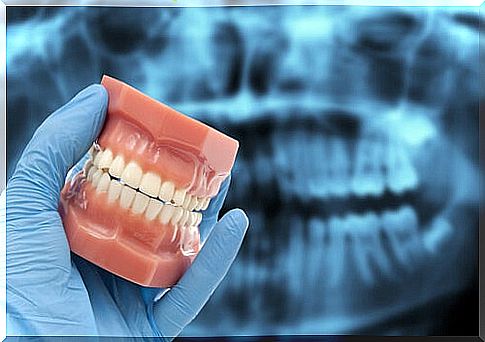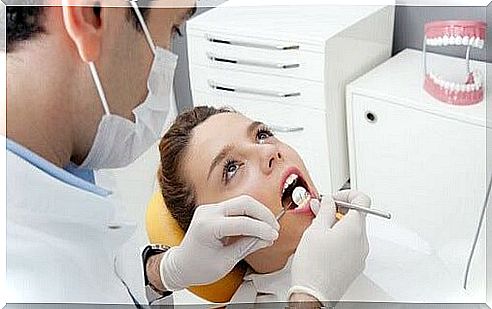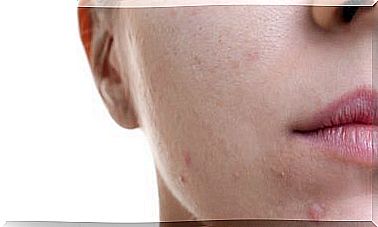Tips To Avoid Oral Health Problems
Our oral health is essential to avoid problems at other levels, since it is the gateway to our body. Cavities can lead to complications if they are not treated in time.

If you have oral health problems, you are likely to have others related to your self-esteem, difficulties in finding a job, poor academic performance, oral discomfort, speech problems, malnutrition and even difficulty swallowing food. Good oral hygiene can help protect much more than just your teeth.
Consider that neglect of an oral infection or cancer can be fatal. Some universal cares that can help you prevent oral health problems are:
- Go to the dentist regularly.
- Brush your teeth.
- Use dental floss after every brushing.
However, you can take additional precautions like the ones we explain below.
Oral health problems in children
Poor cleaning of teeth, bottle syndrome and the sugars that come from milk, juices and even food are habits that influence the appearance of cavities.
When these are presented for the first time, they may appear as small white spots near the gums . These turn brown as the tooth deteriorates further.

You can prevent cavities in children by following these tips:
- Restrict bottle feeding.
- Avoid the bottle at bedtime, as food remains accumulate in the mouth.
- Get your baby used to cleaning before his teeth come in. Rub your gums twice a day with a clean, soft, thin cloth.
- When your baby’s teeth appear, switch to a soft brush moistened with water.
- Do not bottle feed your child if he is over 1 year old. You can try the valve cups to replace them.
Women
Oral health problems in women vary at different stages of life . During its development in adolescence, menstruation may be accompanied by sores in the mouth or inflammation of the gums .
- In early adulthood, oral diseases often increase the risk of premature birth or low birth weight in babies.
- In pregnancy there are chances of gingivitis, too little or too much saliva and the appearance of granulomas.
- For this reason, appointments with the dentist should not be skipped during pregnancy and oral hygiene should be extreme.
- During menopause, estrogen deficiency increases the risk of oral health problems and syndromes such as burning mouth appear.
Older adults
As we age, we lose the ability to chew food well, even more so if we use dental prostheses.
Taking medications that cause dry mouth can also be a problem.
This can cause difficulty in swallowing and lead to malnutrition. Plus, it allows bacteria to build up and cause bad breath and gum problems.
As if that were not enough, when diseases such as arthritis or memory impairment can make it very difficult to take care of our oral hygiene. This causes it to go into the background.
People with HIV or AIDS
As you know, people with HIV or AIDS are more vulnerable to infections , which of course includes those from the mouth .
One of the diseases to be aware of is a diffuse white patch on the tongue, called hairy leukoplakia.
In addition, people with HIV or AIDS often develop oral health problems such as fungal infections in the mouth such as histoplasmosis, asperegillosis, and oral yeast infections.
What should you keep in mind to avoid oral health problems?
While some pay more attention to their oral hygiene than others, you should keep these tips in mind and put into practice to enjoy good oral health.
- Visit your dentist at least once or twice a year.
- Brush your teeth with fluoride toothpaste at least twice a day.
- Replace your toothbrush with a new one every three to four months.
- Floss at least once a day.
- Brush your tongue to remove bacteria and freshen your breath.
- Try using fluoride mouthwash.
Consider making an appointment with your dentist if you notice any of the following symptoms:
- Red, swollen, or bleeding gums.
- Extreme sensitivity to cold or heat.
- Difficulty chewing
- Bad breath persistent.
- A permanently loose tooth.
- Constant toothache.
- Suspicion of an abscess.
Conclusions
Keep in mind that when you eat a healthy diet, you help your body prevent oral health problems.
Remember that If you avoid foods with a lot of sugar, such as soda and candy, you will reduce the risk of cavities.
Another tip, which might seem strange, is to use sugar-free gum. When you chew you stimulate your salivary glands. They produce more saliva, which contains many enzymes that neutralize the acid in foods and beverages, as well as calcium and iron phosphate. However, there are also the cons to consider.
Finally, remember that having a beautiful smile is not only an excellent cover letter. It is also a gauge of your overall health.









